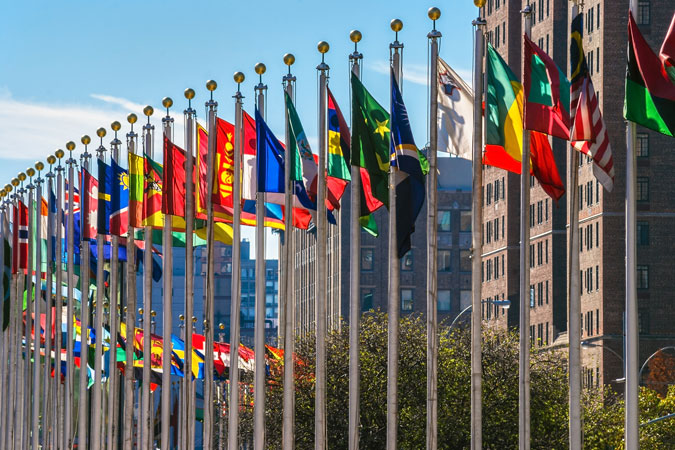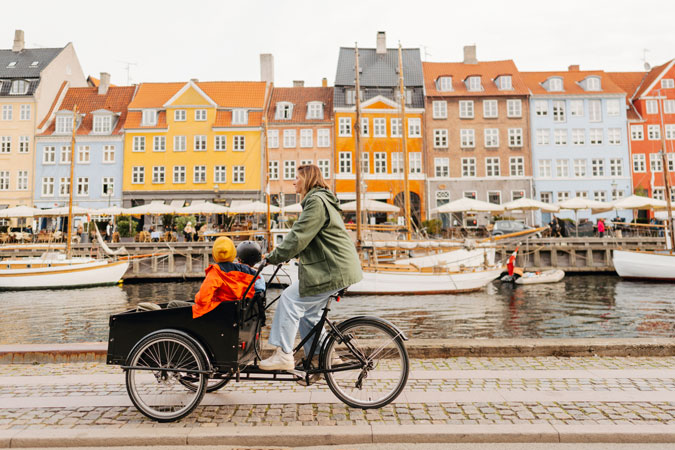Time to be bold and prioritise prevention at UN High-Level Meeting

What is a UN High-Level Meeting?
A UN High-Level Meeting (HLM) is convened by the UN General Assembly. World leaders meet to agree actions to address a global issue. This year, the HLM will focus on the prevention and control of non-communicable diseases (NCDs) and mental health, and will be held on 25 September. It’s the 4th meeting to focus on NCDs, after meetings in 2011, 2014 and 2018. A Political Declaration, negotiated by Member States from May to September, will guide global commitments. This year’s HLM will need to address the insufficient progress made so far, and the urgent action needed to reduce the growing burden of NCDs, and improving mental health and wellbeing.
Addressing global burden of NCDs
NCDs cause 75% of global deaths, with 40% occurring before the age of 70. Low- and middle-income countries bear the greatest burden, with 82% of premature deaths. Cancer is the 2nd most common cause of NCD-related deaths, and cases are rising sharply. Only 19 countries are on track to meet SDG 3.4 by 2030 – risking over 6 million preventable deaths by then, and 40 million by 2060.
Unfortunately, previous HLMs on NCDs have failed to garner strong policy commitments from Member States, lacking specific targets, timelines, financial commitments, or accountability mechanisms – and each successive meeting has noted insufficient progress. This September’s HLM is crucial to reclaim these missed opportunities and achieve strong commitments on the prevention and control of NCDs now, and going forward. We will make the case to Member States on why prevention should be a key priority.
Approximately 40% of cancers are preventable, especially when modifiable risk factors are addressed. Incorporating prevention into the Political Declaration is vital to the success of the HLM as it offers the most effective and affordable long-term method of NCD and cancer control.
Prevention: high-impact and cost-effective
Countries must commit to bold, strategic and measurable targets in the Political Declaration to reduce rates of cancer. Activating prevention as a high-impact and cost-effective health intervention can support a future with fewer cases of cancer and NCDs, alongside fewer costs to human lives, health systems and economies. We have 5 key recommendations to be incorporated into the Political Declaration text:
- Speed up ‘Best Buy’ policy implementation Accelerating the implementation of evidence-backed policies like the WHO Best Buys – which focus on healthy diets, alcohol consumption, smoking and physical activity – would support a positive return on investment and improvements in population health.
- Implement National Cancer Control Plans, with prevention actions and indicators Only 30% of National Cancer Control Plans include prevention actions and indicators – a hugely missed opportunity. Integrating and financing national plans that prioritise prevention would be an effective, affordable and targeted strategy to reduce cancer incidence and improve outcomes.
- Invest in NCDs and prevention measures Financial and technical contributions need to be scaled up to match the global disease burden: NCDs cause 75% of global deaths, yet receive only 2% of development assistance. Every $1 invested in cost-effective interventions like the WHO Best Buys yields at least $7 in returns through better health, employment, productivity and economic stability.
- Address health inequities Cancer disproportionately affects marginalised and lower income populations, not only from higher mortality, but also through increased exposure to risk factors like health-harming products, such as unhealthy food and alcohol.
- Protect policymaking from health-harming industry interference Member States should commit to protecting policymaking processes from the influence of health-harming industries, and not allow lobbying activities to water down commitments that prioritise and protect health over corporate profits.
Action needed on NCDs – now
Much work needs to happen between now and the HLM in September. We’re attending the Multi-stakeholder Hearing in New York this week to engage Member States and share our priorities. Our advocacy will continue through our annual participation at the 78th WHO World Health Assembly this month, as we promote the benefits of cancer prevention policy.
We’ll participate in advocacy activities and side-events, promoting our HLM policy brief, which outlines our key messages. Civil society must continue its vital role in pushing for change and shaping an impactful Political Declaration.
We’ll collaborate with our longstanding partners such as NCD Alliance, UICC, World Obesity Federation and Movendi International to support the cancer and NCD prevention policy agenda. In the lead-up to the HLM in September, we’ll continue this series doing a deeper dive into each of these policy asks, and share our reflections as progress develops.
If you would be interested in supporting these advocacy asks, please reach out to policy@wcrf.org.


